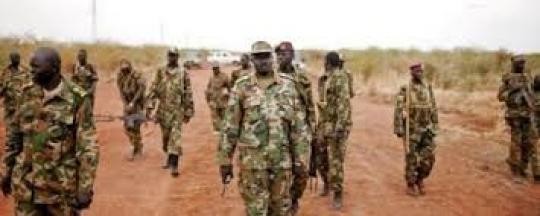South Sudanese soldiers terrorized civilians, looted property, and executed a journalist based on his ethnicity after pushing rebel forces out of the capital of Juba in July, a government investigation said on Wednesday.
The investigation was mandated by President Salva Kiir to look into reports that government soldiers rampaged through the Terrain hotel on July 11th in one of the highest profile attacks on civilians in recent memory.
Eight people were accused of rape, eight more were accused of looting, and one was accused of harming a civilian, Martison Oturomoi, the Deputy Minister of Justice and Constitutional Affairs said at a press conference. But it was unclear how many were soldiers, and what would happen to the individuals next in the country’s fleeting justice system.
The report was grim.
After identifying John Gatluak, a journalist, as a member of the Nuer tribe, a government soldier executed him and then lodged four more bullets into his dead body, the report said.
One “victim described how she was subjected to sexual assault, harassment, intimidation, and then gang raped. The victim revealed that one solider dragged her into the main room of the apartment and raped her on the floor, while another soldier raped the other expatriate woman in the bathroom,” the report reads.
While it was filled with explicit details, the report offered little insight into who exactly was responsible.
Gatluak’s killer remains unknown. Although government soldiers committed sexual violence, it was “difficult for any person other than the victim to identify the offender,” Oturomoi said, repeatedly going out of his way to emphasize that they were acting in an individual capacity.
It recommended that a special court with military oversight try the individuals accused during the Terrain attack. South Sudan’s law says that soldiers who commit crimes against civilians should be tried in a civilian court.
The report blamed a lack of pay and not enough support for South Sudan’s government as the root cause of the attack.




